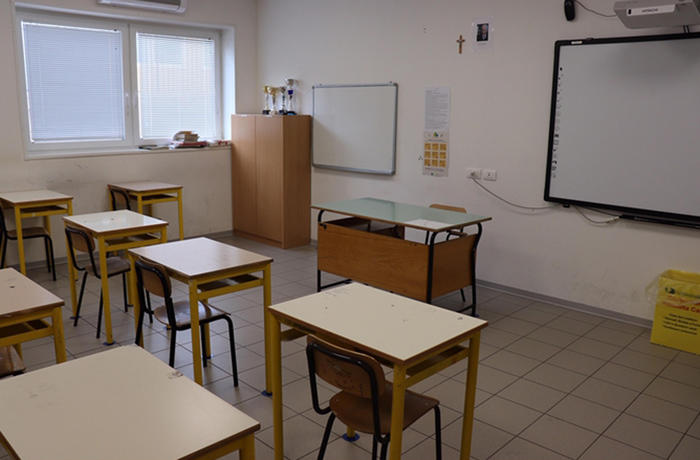The Ifrap Le Figaro rating
School principals finally in "
managerial employment
" ... The bill was tabled on May 12, 2020 and has just been validated by a joint committee after long negotiations.
The aim of the reform is to bring the status of school directors closer to that of heads of secondary schools.
This concerns 40,963 teachers who carry out teaching and school management missions.
The text establishes the principle of a “
functional authority of school directors
”.
The latter will now have a “
managerial job
” and will benefit from a “
delegation of powers from the academic authority
”.
To discover
The 2021 Christmas bonus will be paid from December 15
Read also School principals: the Senate adopts a LREM bill
It seems anecdotal, but so far school principals are just teachers among the rest and have no hierarchical superiority over the rest of the teaching team.
The schools are thus managed according to a collegial principle with a council of school teachers.
The principal's voice carries no more weight than that of another teacher.
A very vague notion
This nonsense will now be corrected even if the notion of “
functional authority
” is very vague and will not give more hierarchical power to the school principal over human resources or the institution's finances.
It is the Inspector of National Education who will continue to be the hierarchical superior of teachers (with 7 to 8 inspections on average over the entire career of the teacher according to the Court of Auditors) and the rectorate of manage the teaching staff, salaries or transfers.
Read also Young teachers facing the wall of reality
The heads of French schools are among those who have the least responsibility. As an indication, the average in the OECD countries was “
that 59% of pupils are educated in establishments which declare that they can freely hire their teachers and 50% are in schools which can dismiss their teachers.
"Ditto for autonomy in terms of resources (breakdown of the budget in the establishment) whereas" on
average in the OECD, 84% of 15-year-old pupils are enrolled in establishments which decide on their own how budgets are spent, and 57%% attend establishments that freely develop their budgets.
"
However, there is an exception because the 4,101 private primary school directors under contract are, for their part, considered as “school
heads
” as well as their 1,769 secondary school colleagues.
In particular, they control the budget of their establishment, are the hierarchical superior and are the managers of all the salaried staff of the establishment (administrative, technical staff, etc.) and participate (a little) in the recruitment of teachers who pass interviews with the school head.
That said, they are not the supervisors of the professors either.
Towards more autonomy
This measure (to which the teachers' unions are mostly opposed) aims to recognize a certain authority in school principals.
However, this does not go at all as far as what was designed by the President of the Republic in Marseille with the announcement of the experimentation of autonomous schools where principals will be able to manage their budgets independently and recruit their teaching teams. .
It would seem, however, that we were gradually (finally!) Moving towards more autonomy for primary schools, colleges and high schools as in many other European countries which let their heads of establishments choose their teachers, evaluate them. and control their budget.









